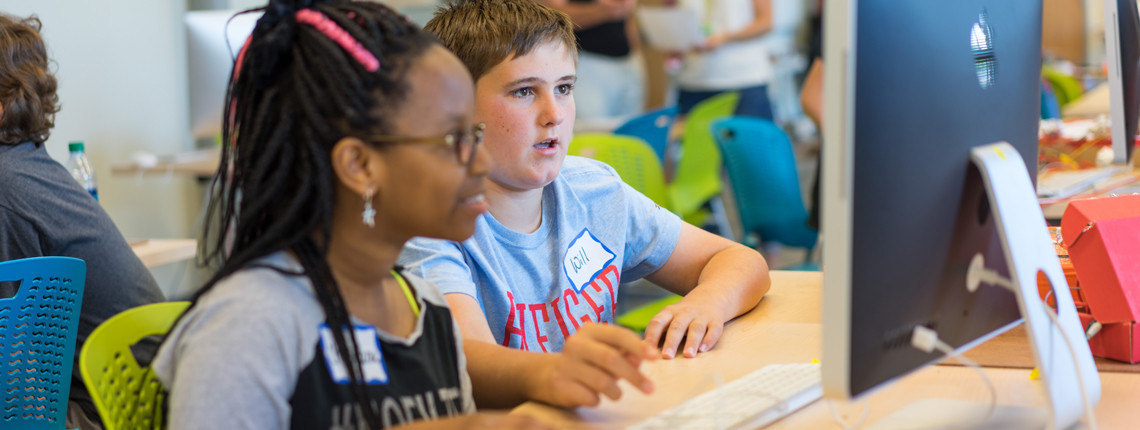STEM Discovery Lab Encourages Inquiry-Based Learning

How do you harness wind to produce power? What cleanup process is most effective when an oil spill occurs in a body of water? These are some of the questions posed at the UNH STEM Discovery Lab in Manchester.
The lab works in partnership with Extension to foster inquiry-based learning—an active form of education through which students pose questions to specific problems or scenarios. It’s a model that encourages curiosity and sparks creativity through observations, investigations, tests and discussions.
Why STEM?
STEM is an acronym used for the fields of science, technology, engineering and mathematics. Educators cluster these disciplines together in order to prepare students for careers that require processing lots of information and solving complex problems.
Because technology is constantly evolving, students need to be nimble and adaptable. The STEM Discovery Lab helps develop these skills, which are critical for the current and future workforce of New Hampshire.
The lab offers engaging workshops and training opportunities for volunteers, educators and youth. Programs for students in grades K-12 are geared toward generating excitement about STEM while providing a pathway for continued access and engagement.

UNH STEMbassadors (students from UNH’s College of Engineering and Physical Sciences) serve as role models by helping youth learn at events like STEMfest—a learning opportunity for fourth, fifth and sixth grade students from the greater Manchester area. STEM Education Field Specialist Sarah Grosvenor said, "STEMfest is a unique event that brings together learning, mentoring, fun and partnerships. It is not every day that kids get to visit the university that sits right in their backyard with activities taught by aspiring scientists." Students get to simulate an environmental disaster, build their own model wind turbines and employ principles of design, control and application by using robots.
Additionally, programs for teachers and volunteers provide professional development for inquiry-based teaching methods and workshops on biomechanical and mechanical engineering.
